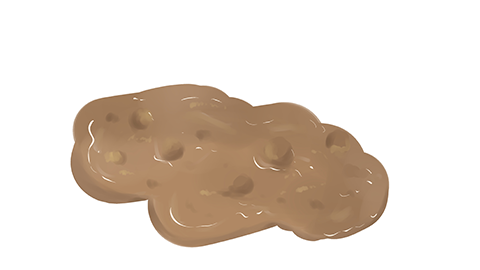Why does drinking Chinese herbal medicine cause diarrhea?
Diarrhea, also known as loose bowels, may occur after taking traditional Chinese medicine (TCM), possibly due to drug irritation, normal drug reactions, spoiled medicine, drug allergy, gastroenteritis, or other factors. If abnormalities occur, it is recommended to seek timely medical attention at a hospital to determine the cause and receive targeted treatment accordingly. Specific explanations are as follows:

1. Drug irritation: Some traditional Chinese medicines have a cold nature or contain laxative ingredients, such as rhubarb and senna leaves. These components may irritate the gastrointestinal tract, especially in individuals with cold-deficient body constitution or weak spleen and stomach, making them more prone to irritation reactions, manifesting as diarrhea. It is recommended to consult a doctor to adjust the prescription, avoid taking TCM on an empty stomach, and choose warm-natured herbs or foods for regulation and nourishment.
2. Normal drug reaction: When taking TCM for removing dampness or clearing internal heat, diarrhea may occur due to the effect of the medication. This is a normal response as dampness and excessive internal heat are expelled from the body. Usually, no special treatment is needed, and symptoms will resolve spontaneously after several days.
3. Spoiled medicine: Improper storage of TCM may lead to spoilage, which can cause diarrhea and other symptoms, possibly accompanied by nausea, vomiting, and fever. Immediately stop taking the spoiled medicine and seek medical attention for symptomatic treatment such as fluid replacement and anti-diarrheal measures. Additionally, pay attention to the storage conditions of TCM, avoiding humid or high-temperature environments.
4. Drug allergy: Some individuals may be allergic to certain components in TCM, which can trigger gastrointestinal symptoms such as diarrhea, abdominal pain, nausea, and vomiting. Accompanying symptoms may also include rash, itching, and difficulty breathing. Treatment involves immediately discontinuing the TCM and seeking medical attention for anti-allergy treatment as directed by a physician, such as using Loratadine tablets, Ebastine tablets, or Montelukast Sodium tablets.
5. Gastroenteritis: Long-term unhealthy lifestyle habits may lead to gastroenteritis, and taking TCM might worsen diarrhea, accompanied by symptoms such as abdominal pain, fever, and blood in the stool. Medications such as Levofloxacin tablets, Ciprofloxacin Hydrochloride tablets, and蒙脱石散 (Smectite Powder) may be used under medical guidance. Adjust the TCM prescription accordingly and avoid using ingredients that may exacerbate intestinal diseases.
In daily life, maintaining a healthy lifestyle, improving dietary habits, engaging in appropriate physical exercise, and enhancing overall physical health can help reduce the risk of illness.







